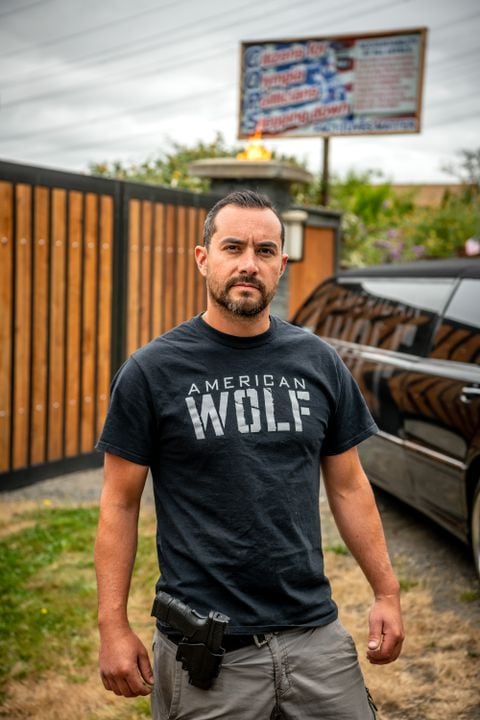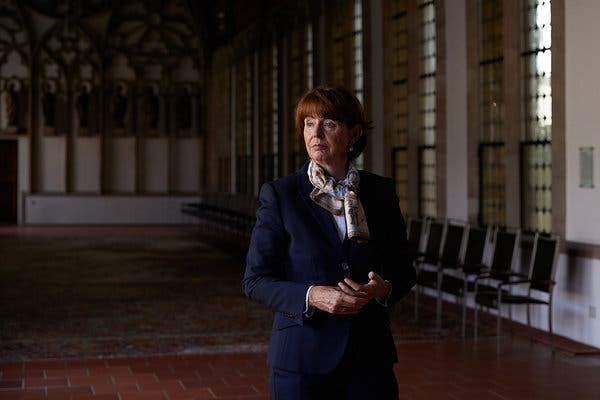Jack Evans’ unprecedented expulsion, a shady lottery contract, and federal prosecutors’ meddling in local legislation
 Ward 2 Councilmember Jack EvansDarrow Montgomery/File
Ward 2 Councilmember Jack EvansDarrow Montgomery/File
LL is declaring 2019 the Year of Jack Evans. The District’s longest serving lawmaker’s disgraceful exit from the D.C. Council appears imminent after a year in which his misdeeds came into full view. There’s certainly enough material on Evans to fill this entire column, but LL doesn’t want to deprive his readers of recaps of a mayoral tussle with the arts commission, federal prosecutors’ meddling in local legislation, and a botched whistleblower complaint.
Finally, Jack’s Off
It’s been a helluva year for the Ward 2 councilmember. The once unofficial “vice mayor,” chair of the region’s public transportation authority, lord of the District’s tax and revenue legislation, and notorious parker now faces near-certain expulsion. Evans’ official actions on behalf of his private clients lost him the support of most of the city, a Washington Post poll shows. His Council colleagues seem to agree with their constituents.
Among the highlights from the Year of Jack:
The U.S. Attorney’s Office served the Council and the mayor’s office with subpoenas in March seeking information on Evans’ private consulting clients. Federal agents raided Evans’ Georgetown home in June, right around the time he was caught fibbing to his colleagues and the public about the results of an investigation commissioned by the Washington Metropolitan Area Transit Authority, which found that he “knowingly” violated ethics rules.
D.C.’s Board of Ethics and Government Accountability fined Evans $20,000 in August for enlisting his chief of staff to send business pitches on his behalf to legal and lobbying firms using government email addresses, a violation of the Council’s Code of Official Conduct.
During this year’s historic statehood hearing in the House of Representatives, Republicans invoked Evans’ name in their argument to continue denying 700,000 tax-paying residents voting representation in Congress.
The most damning revelation came from the law firm hired by the D.C. Council, which concluded that since 2014 Evans repeatedly violated conflict of interest rules and failed to disclose his personal financial interests. All 12 of Evans colleagues relied on that investigation to push forward with recommending his expulsion.
Unless he resigns before the Council can act in mid-January, Evans will be the first lawmaker forced off the Council.
See Shell Company
The lucrative contract to operate D.C.’s lottery and implement its new sports gambling program generated heated debates on the Council this year. The $215 million, no-bid contract went to the Greek company Intralot, the DC Lottery’s current operator.
What several of the subcontractors working with Intralot lack in experience running a gaming operation, they make up for in political connections. The Post reported some of the subs include former campaign aides to Mayor Muriel Bowser, a cousin of Ward 5 Councilmember Kenyan McDuffie, and a former DC State Board of Education official.
The bulk of the contract ($110 million) went to a firm headed by businessman Emmanuel Bailey. But, as the Post reported, Bailey’s company appears to have zero employees, raising questions about just how much actual work his company will do.
In August, At-Large Councilmember Elissa Silverman asked D.C. Attorney General Karl Racine’s office to investigate whether the contract complies with the law. Racine has yet to respond.
Whistleblown
A whistleblower seeking to shed light on potential political favoritism in the award of a $16 million loan from the Housing Production Trust Fund went ignored for a year after initially filing their complaint.
The allegations only saw the light of day because the whistleblower contacted the Office of the D.C. Auditor, who picked up what the Office of Government Ethics dropped. The auditor’s investigation substantiated the complaint—that high-ranked projects lost out on trust fund dollars to lower ranked (and in one case the lowest ranked) proposals. One beneficiary was David Jannarone, a former development official in the D.C. government.
“Harm has been done,” Auditor Kathy Patterson said during a committee hearing in November. “We did not serve that employee well, and failure should have consequences.”
To make matters worse, At-Large Councilmember Anita Bonds outed the whistleblower during a separate committee hearing. She says it was an accident, but not everyone is convinced that’s the case.
War of Art
Everything is cool in D.C.’s public arts world for now, but mark 2019 as the year Mayor Bowser decided she would die on art hill.
Starting in May, Bowser proposed converting millions in grant funds from the D.C. Commission on the Arts and Humanities into loans. That didn’t go over well with the arts community.
The mayor briefly cancelled the 34th Annual Mayor’s Art Awards, a long running program administered by the arts commission, before relaunching it under a new office she created this year, which some believe duplicates the commission’s role.
Herronor also briefly seized control of the arts commission’s collection of more than 3,000 artworks, and with her third-ever veto, rejected a Council bill clarifying the commission’s independence from the mayor’s office.
The Council easily dispensed with the mayor’s veto, and the D.C. Attorney General’s office issued a legal memo saying Bowser’s arts vault takeover was illegal.
But in November, arts commission board chair Kay Kendall and Bowser’s chief of staff, John Falcicchio, came to an agreement over who has access to the art vault. According to a memo, the mayor and the commission “shall endeavor to work cooperatively.”
Start a New Sentence
D.C. is rethinking criminal sentences for youthful offenders, and the U.S. Attorney’s Office is not happy about it.
This summer, federal prosecutors began waging a campaign against the Incarceration Reduction Amendment Act (IRAA), which would give young people convicted of serious crimes, such as rape and murder, a shot at release. The current law allows offenders who committed their crimes before the age of 18 to ask a judge for a new sentence. The IRAA would expand the age limit to 25.
The Trump-appointed U.S. Attorney for the District of Columbia, Jessie Liu, has argued that the bill will let dangerous criminals loose and retraumatize victims. During a September meeting, federal prosecutors presented inaccurate information on D.C.’s incarceration rate to support their opposition.
Supporters of the law, and the U.S. Supreme Court, say decades-long sentences (and in many cases life sentences) for youthful offenders are too harsh. The bill has yet to come before the full Council for debate, but it has preliminary support from a majority of the members.
Allyship Down
Some members of D.C.’s LGBTQ community felt snubbed during this year’s budget season. In a year when reports of suspected hate crimes are on the rise, but criminal prosecutions are sparse, the Council’s failure to appropriate funds for LGBTQ initiatives angered advocates and neighborhood-level elected officials.
In the wake of two high-profile deaths of transgender women of color, those elected officials, known as the Rainbow Caucus, sent a scathing letter to Council Chairman Phil Mendelson and the rest of the Council describing what they believe is “institutional disrespect.”
“We learned long ago that silence = death … and your silence and inaction is killing members of our community or placing them in harm’s way and in hospital emergency rooms,” the letter says. “We will not be complacent, we will not be silent, we will hold every single Councilmember accountable for their failures—both now and during election time.”
Trail Blazers
We’re still several months away from June’s Democratic primary, where most local races are decided, but anticipation is already building.
The Office of Campaign Finance has some kinks to work out of its publicly funded elections program. Mostly notably, OCF gave Ward 2 candidate Jordan Grossman some bad advice, which led him to exceed the $2,500 limit on donations from family members. Five other candidates are tussling for the Ward 2 seat: Evans’ former campaign chairman; a self-named “MOCR for life” (an unfortunate acronym for a ward-level mayoral liaison); a former Marine and current Microsoft employee; a Republican-turned-Democrat; and a Fulbright Scholar, who emigrated from China when she was three. Evans has not filed for re-election.
Ward 4 offers a microcosm of the potential shifting ideologies on the Council. Challenger Janeese Lewis George’s publicly financed campaign against Green Team incumbent Brandon Todd has taken in $112,436. George is running to Todd’s left and has the backing of the city’s progressive groups. Todd will continue to benefit from a massive war chest (a total of $371,524 as of December) with the help of Bowser’s donor base and city contractors.
At-Large Councilmember David Grosso announced that he will vacate his seat (one of two citywide positions set aside for the non-majority party) and immediately endorsed his former staffer, Christina Henderson. LL wonders if Grosso is aiming for a run at the chairman’s seat in 2022. Shadow Rep. Franklin Garcia also announced he’s running for Grosso’s seat.
In Memoriam
Sterling Tucker, a civil rights activist and the District’s first elected chairman of the Council, died in July of congestive heart failure and kidney failure. He was 95. In his time on the Council, Tucker championed gun control, rent control, and voting rights for felons, all of which are still topics of debate today. After serving as director of the Washington Urban League, and then a four-year term as chairman, the mild-mannered Tucker finished second to Mayor-for-Life Marion Barry in the 1978 mayoral primary.
Mark Plotkin, the “impatient, impolite, and insistent” political commentator known for his cantankerous advocacy style died in September. He was 72. The Chicago-raised George Washington University grad was a WTOP political analyst, WAMU host, and general rabble rouser, and ran twice for the Ward 3 Council seat, losing both times. He is remembered as a fervent D.C. statehood advocate and was the major force behind D.C.’s “Taxation Without Representation” license plate tag line.


